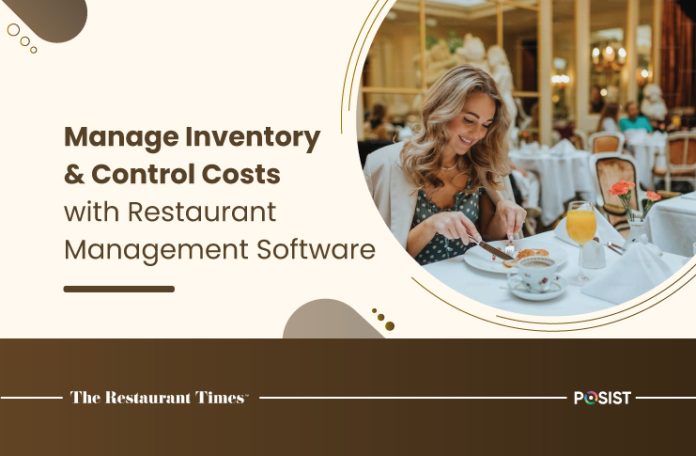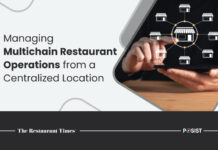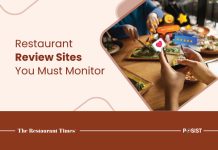Restaurant management software revolutionizes food establishments’ operations by providing efficient tools to manage inventory and control costs. With the complexities of running a restaurant, tracking inventory manually can be time-consuming and prone to errors.
However, owners and managers can streamline their operations with specialized software. The best restaurant management software enables real-time tracking of stock levels, automated purchase orders, and precise forecasting. By optimizing inventory management, restaurant software empowers businesses to minimize waste, prevent overstocking, and maintain adequate supplies.
Moreover, the software’s cost control features allow for accurate tracking of expenses, identifying areas of excessive spending, and implementing cost-saving measures. The result is enhanced profitability and improved overall efficiency in the food service industry.
Ways Restaurant Software Can Optimize Inventory Management and Cost Control
Operating a restaurant is no easy task, but thanks to technology, restaurateurs now have access to powerful tools that offer numerous benefits. Gone are the days when restaurant owners had to rely on disparate systems from different vendors, wondering if they would integrate seamlessly or meet their evolving needs. Today, restaurant management software companies have revolutionized operations for busy restaurant owners, providing a comprehensive solution that boosts sales, saves time and money, streamlines operations, and enhances the overall guest experience.
According to Grand View Research, the market size of restaurant management software will reach $4.5 million in 2022. The market is projected to experience a 16.3% CAGR from 2023 to 2030. This growth is primarily driven by factors such as the rising global restaurant count, the expanding adoption of cloud-based technology, and the growing popularity of Quick Service Restaurant (QSR) services.
Here are some ways the best restaurant management software can revolutionize your inventory management processes and help you control costs effectively.
1. Streamlining Inventory Management
One of the primary advantages of restaurant management software is its ability to streamline inventory management tasks. According to the 2022 State of the Restaurant Industry by the National Restaurant Association, a staggering 96% of operators encountered disruptions or shortages in the supply of essential food and beverage items in 2021. An inventory management software list can significantly enhance efficiency in the restaurant industry. By leveraging the power of inventory management software, you can streamline your operations and optimize how you handle stock levels and ingredients. No more laborious manual counting, as these software solutions automate the process, reducing errors and saving valuable time. With real-time record-keeping capabilities, the inventory management software keeps you informed about your inventory, ensuring accurate updates and timely alerts when supplies are running low. This ensures that your restaurant never faces the inconvenience of running out of essential ingredients during busy periods, and it helps you avoid any delays in restocking.
Additionally, the restaurant management software simplifies ordering and purchasing processes. It can generate purchase orders automatically based on predefined stock thresholds, eliminating the need for manual entry and potential human errors. By integrating with suppliers and vendors, the software enables seamless communication, making it easier to place orders and track deliveries.
2. Cost Control and Reduction
Controlling costs is vital for any restaurant’s profitability, and restaurant management software is crucial in achieving this. The software allows for accurate cost calculations for menu items by tracking ingredient costs and portion sizes. With this information readily available, you can make informed decisions regarding pricing and menu engineering to maximize profitability.
Furthermore, restaurant management software helps reduce waste and shrinkage. Accurately tracking inventory levels and providing real-time data allows you to identify waste areas and take proactive measures to minimize them. It also assists in efficient stock rotation and expiration management, ensuring you utilize ingredients before they
go bad, thus reducing unnecessary food waste.
3. Forecasting and Demand Planning
Anticipating customer demand and planning accordingly is key to optimizing your inventory levels. Restaurant management software can analyze sales data, customer preferences, and historical trends to provide valuable insights for demand forecasting. This allows you to adjust your inventory levels based on expected demand, minimizing the risk of overstocking or understocking items.
By accurately predicting demand, you can optimize purchasing decisions and avoid tying up capital in excess inventory. This reduces costs and ensures that you can promptly meet customer demands, enhancing customer satisfaction and loyalty.
4. Vendor Management and Price Comparison
Maintaining strong relationships with vendors and suppliers is essential for any restaurant. The restaurant management system app simplifies vendor management by providing a centralized database and contact management system. This allows you to keep track of vendor information, including pricing, terms, and delivery schedules, all in one place.
The software facilitates automated purchase order generation and tracking, ensuring efficient procurement processes. Moreover, it lets you compare prices across multiple vendors and negotiate better deals, leading to cost savings and increased profitability.
5. Reporting and Analytics
You need access to accurate and insightful data to make informed decisions about your inventory and costs. Restaurant management software provides comprehensive reporting and analytics features that give you a holistic view of your inventory usage, costs, and trends. You can generate reports highlighting top-selling items and low performers and even identify seasonal trends.
With this data, you can make data-driven decisions regarding menu planning, dynamic menu pricing adjustments, and cost control strategies. The software empowers you to identify opportunities for improvement, optimize your offerings, and enhance profitability.
6. Integration with POS Systems and Accounting Software
Restaurant management apps can integrate seamlessly with your POS systems and accounting software. This integration enables data to flow between various systems, ensuring accurate and up-to-date information.
The software syncs sales data with inventory levels, allowing for real-time updates and eliminating the need for manual reconciliation. It also simplifies financial reporting and expense tracking, making monitoring costs easier and identifying improvement areas.
7. Enhanced Guest Experience
Restaurant management software can help you make every dining experience memorable for your customers. According to a Harvard Business School study, an increase of one star in a restaurant’s Yelp score was linked with a revenue boost ranging from 5% to 9%. By utilizing a unified restaurant management platform, your kitchen ensures that all orders are processed correctly and promptly, resulting in guaranteed order accuracy and decreased waiting periods.An all-in-one restaurant management software also benefits how you serve customers: on-premises, off-premises, order ahead, schedule pickups, delivery, and more. When your RMS has a customer loyalty program, you can reward regular customers for their business and keep them returning for more.
Enhance Inventory Management and Cost Control with Restaurant Management Software
Investing in the best restaurant management software is a game-changer for managing inventory and controlling costs effectively. It streamlines inventory management processes, reduces waste, and enables better cost control. With features such as demand forecasting, vendor management, and comprehensive reporting, the best ERP for restaurants empowers you to make informed decisions that enhance operational efficiency and profitability.
When selecting restaurant management software, it is important to consider well-established companies specializing in this field. Look for reputable options offering various features, including automated inventory tracking, demand planning, vendor management, and seamless integration with POS systems and accounting software. By embracing technology and opting for the finest solution designed specifically for restaurants, you can tap into the complete potential of your restaurant’s inventory management and effectively control costs.


















